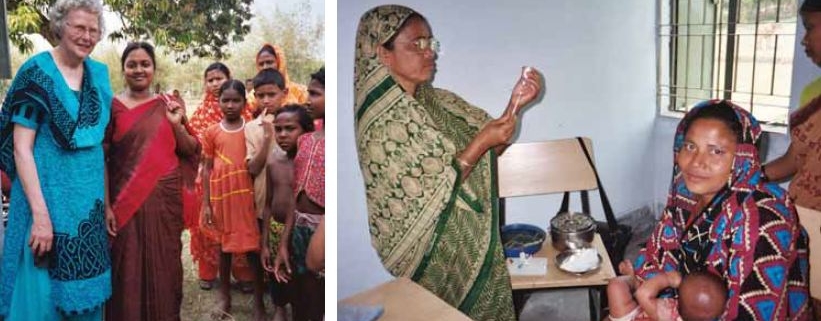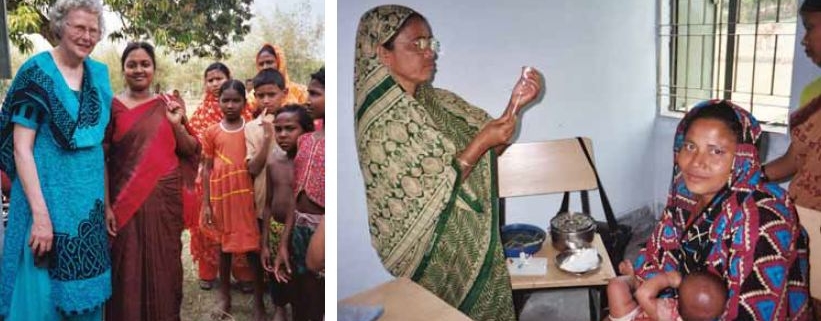Rina’s father came to the hospital about two weeks ago with bowel obstruction. He is a homeopath, and had been treating himself for a month. The family didn’t want to go to Rangpur Medical College for an operation – or rather, going to Rangpur (about 50km away) for an operation was as much within their world-view as going to the moon might be.
I tried to talk to them, but it was obvious to me that they just couldn’t cope with the level of decisionmaking required. Left to themselves, they would have taken him home to die. I was extremely tired and very busy at the time, and couldn’t give them the time and emotional energy required to talk it through so that they could make their own informed decision.
So, against all my years of experience and my better judgment, I took over and told them what to do. We tried conservative treatment for one day, with some initial success, but the next morning it was obvious that he would die without an operation. It was also a hartal (general strike), and only ambulances and bicycle rickshaws could safely use the roads.
So I continued to behave like a boro lok (a local term for an important or influential person) and sent him off with a referral letter and a LAMB medical assistant (who I simply pulled from his duties for that day), as the thought of going alone was still too much for them. I arranged for them to use the local government health complex ambulance and sent them to see Dr Murshed (the husband of one of our staff doctors) at Rangpur Medical College. I also gave them a letter for Dr Murshed asking that he make sure that they got good treatment and that I would cover all of the cost.
Rina’s father was admitted to a private clinic, and was operated on by the best surgeon in Rangpur (arranged by Murshed). The surgeon also agreed to cut his fee as they were poor. Ironically, they are not poor by the standards of the patients we see at LAMB, and they had the promise of financial support from me. Despite initial misgivings, he made a steady recovery and is due to be released today.
Discomfort I sat down the day after I sent him off to Rangpur and tried to articulate my discomfort at the whole event. I had saved a life. This isn’t an unusual experience for me as a doctor in Bangladesh. But this time it was because I had abused my position at LAMB, used my friends and contacts in Rangpur and thrown the promise of money around. In short, I had behaved in exactly the way I work to prevent people behaving here.
Rina’s father lives today not because I am a doctor, but because I am an important, powerful, connected person, and because Rina works in my house. If she had not been related to me in this way she would not have come to me for help, and her father would have died. She came to me as her ‘patron’, and I obliged by behaving like one.
And yet her father had as much right to live as the next man. Dear God, why him and not the next man?








